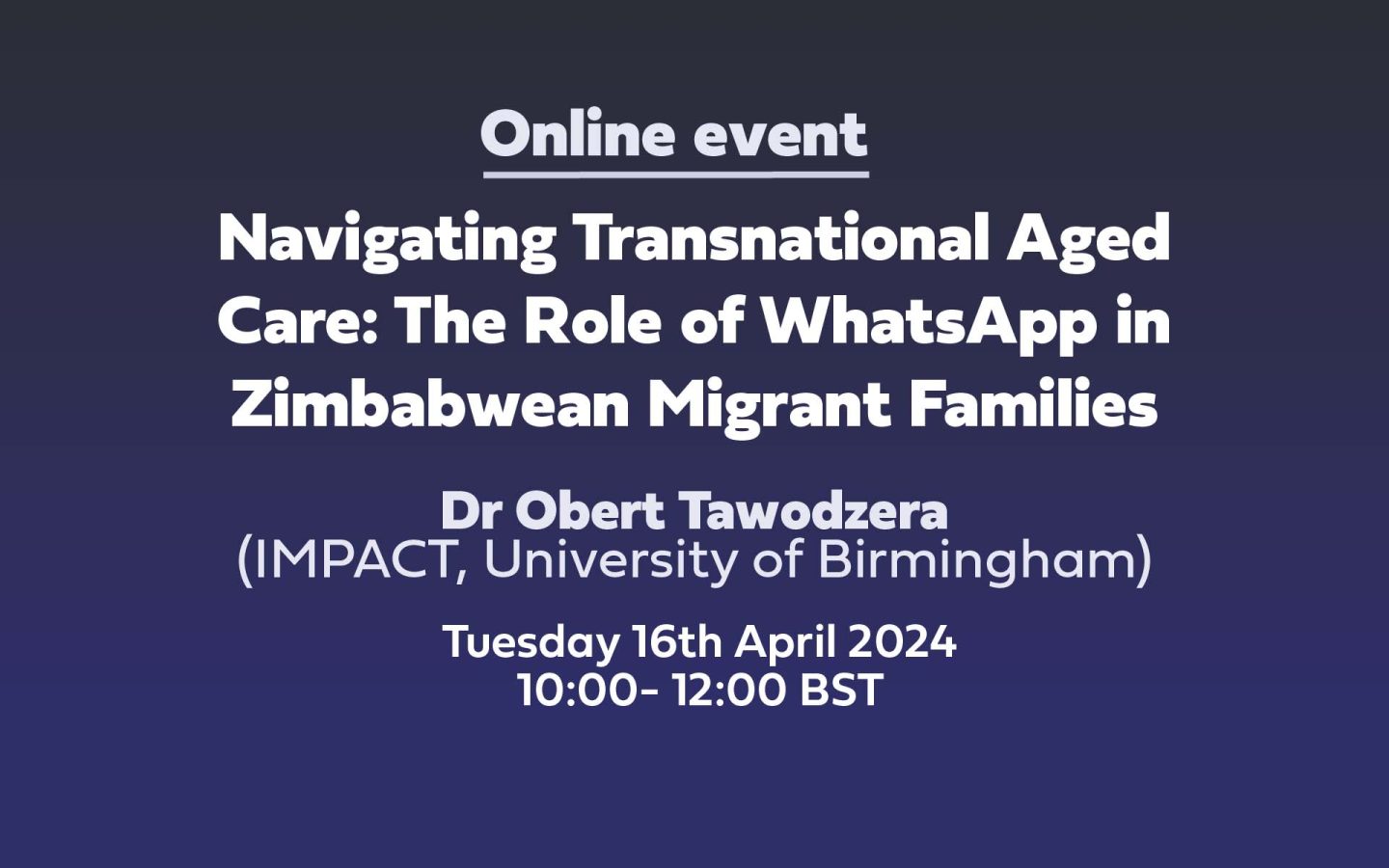Navigating Transnational Aged Care: The Role of WhatsApp in Zimbabwean Migrant Families
On Tuesday 16th April we welcomed Dr Obert Tawodzera from the University of Birmingham to present his work for us as part of our Expert-led Technology and Care sessions. A recording of the event is now available, press play below.
Abstract
Global migration patterns and the increasing complexities of family structures have brought forth new challenges in aged care arrangements, particularly for transnational families. In these contexts, reliance on digital communication technologies has become paramount for sustaining and managing aged care obligations across borders. In this presentation sheds light on the pivotal role of WhatsApp family groups in facilitating transnational aged care, focusing on insights gleaned from multi-sited interviews conducted with three distinct transnational family constellations spanning Zimbabwe and the UK. Specifically, the UK-based families comprise migrant care workers, while their counterparts in Zimbabwe are their siblings and aging parents.
The study unveils how WhatsApp family groups serve as virtual hubs, where Zimbabwean transnational families strategize, coordinate, and execute care plans for their elderly parents across geographical boundaries. However, the findings also underscore the nuanced challenges inherent in managing transnational aged care through WhatsApp family groups, particularly concerning the financial pressures faced by migrant care workers compelled to remit funds. Furthermore, gendered assumptions regarding caregiving roles and entrenched power dynamics within Zimbabwean families are perpetuated and amplified through this digital medium.
This research contributes significantly to the burgeoning literature on transnational care and the intersection of technology within familial networks. By delving into Zimbabwean perspectives on transnational care and the utilisation of modern communication technologies, the study offers a deeper understanding of the evolving dynamics within migrant families. Moreover, it highlights the need for more nuanced approaches to support transnational caregivers and address the complexities of intergenerational care across borders.
About the presenter
Obert Tawodzera is a Research Fellow and Project Officer for IMPACT (Improving Adult Care Together) at the Department of Social Work and Social Care, University of Birmingham. His work focuses on enhancing the utilisation of high-quality research evidence to drive innovation and improvement within the adult social care sector. Obert’s research expertise lies in migrant transnational care arrangements, the integration of new technologies in adult social care, and wellbeing of ageing migrants. His doctoral thesis, which examined aged care arrangements in Zimbabwean transnational families, was part of the ESRC-funded Sustainable Care Programme. Beyond academia, Obert is actively involved in social change initiatives. He serves as a dedicated board member of People’s Voices Media, a charitable organization focused on empowering individuals and communities for positive societal transformation. Additionally, he contributes as a Reviews Editor for the International Journal of Care and Caring. His latest publication can be found here https://doi.org/10.1080/13229400.2024.2318335.
Click here to register your place on a Google form
Expert-led Technology and Care sessions
Technology is increasingly relevant to all aspects of the care ecosystem. The Centre for Care team researching Digital Care aims to highlight the relevance of developments in technologies and their evolving use in care for all work across the Centre. We also plan inclusive sessions, codesigned and delivered with partners, involving our entire team and open to relevant stakeholders. Beyond their role in fostering Centre integration, the sessions will also build insight and capacity in the role of technologies. The TSA (Technology-Enabled Care Services Association), whose membership includes technology designers, manufacturers and providers as well as local bodies with statutory care responsibilities, has extensive experience of engaging stakeholders and driving debate in the care sector; this collaboration aims to stimulate new thinking/project development, and make an outward-facing, inclusive contribution producing policy papers and accessible, thought-provoking materials for public and care sector audiences.
More events
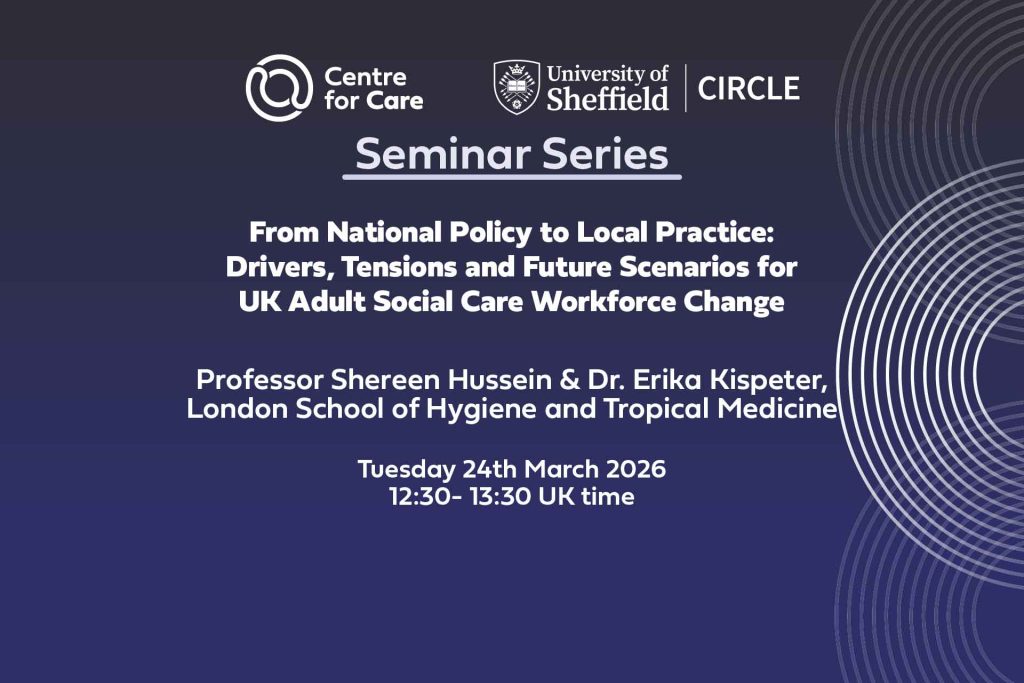
We are delighted to virtually welcome Professor Shereen Hussein and Dr. Erika Kispeter from the London School of Hygiene and Tropical Medicine to present for us on 24th March 2026.
Read More about Seminar: From National Policy to Local Practice: Drivers, Tensions and Future Scenarios for UK Adult Social Care Workforce Change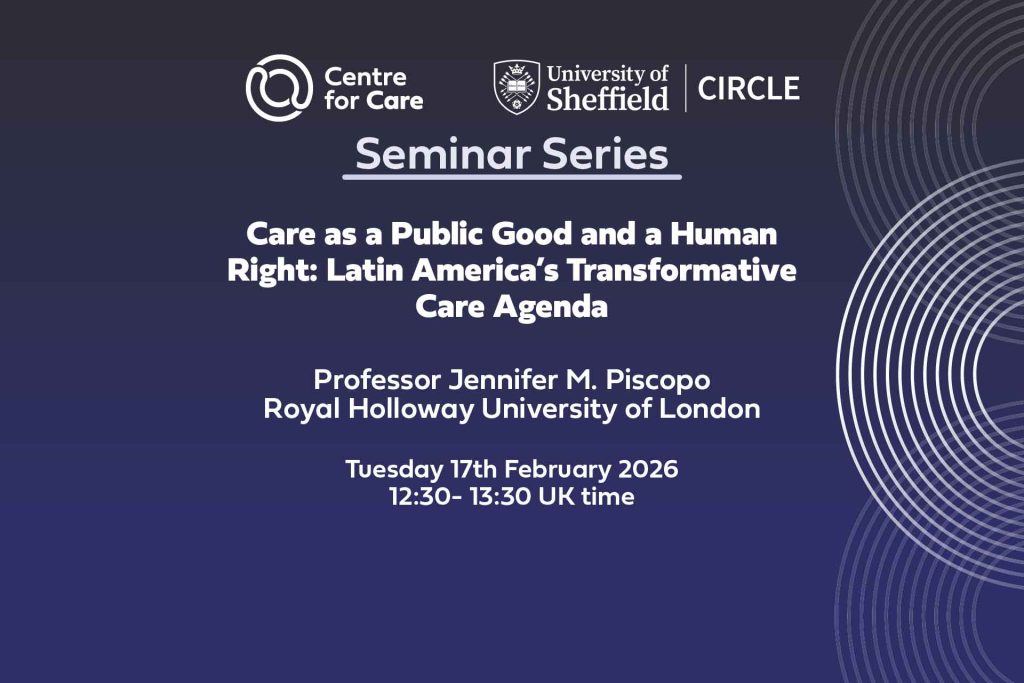
We are delighted to virtually welcome Professor Jennifer M. Piscopo, from the Royal Holloway University of London, to present ‘Care as a Public Good and a Human Right: Latin America’s Transformative Care Agenda’ on Tuesday 17th February 2026
Read More about Seminar: Care as a Public Good and a Human Right: Latin America’s Transformative Care Agenda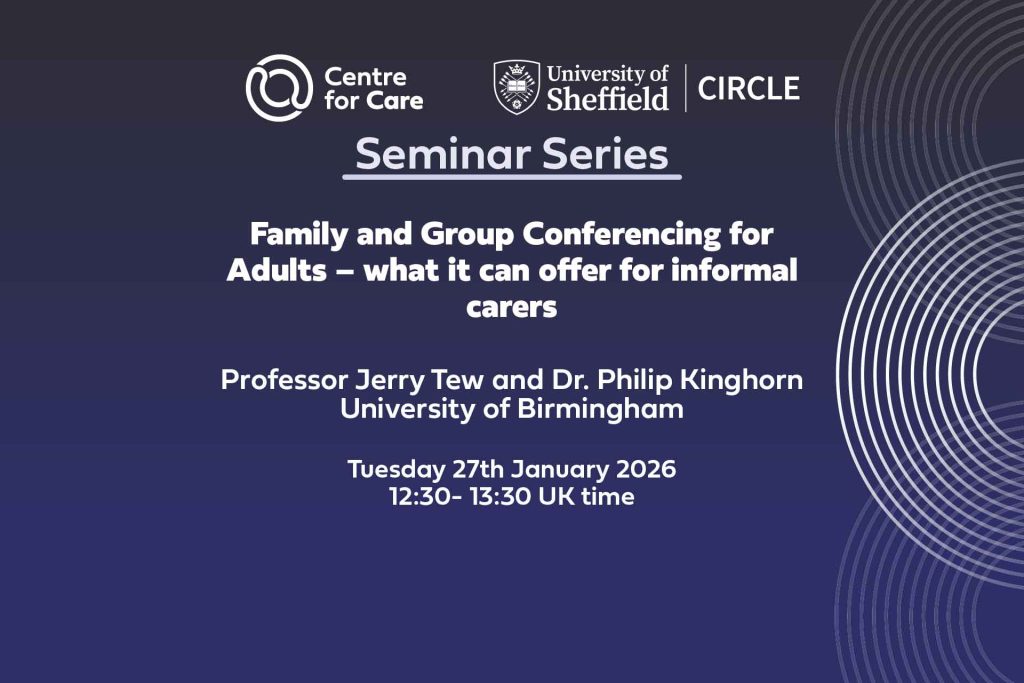
Seminar recording now available! We welcomed Professor Jerry Tew and Dr. Philip Kinghorn from the University of Birmingham, to present ‘Family and Group Conferencing for Adults – what it can offer for informal carers’ on Tuesday 27th January 2026.
Read More about Seminar: Family and Group Conferencing for Adults – what it can offer for informal carers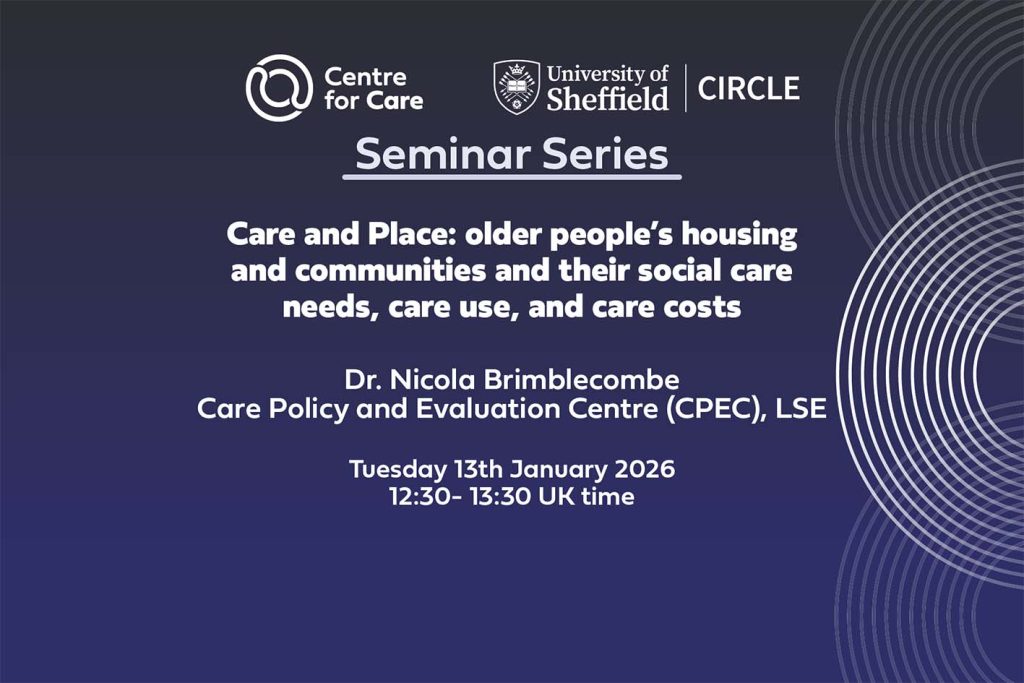
Seminar recording now available! We welcomed Dr. Nicola Brimblecombe to present ‘Care and Place: older people’s housing and communities and their social care needs, care use, and care costs’ on Tuesday 13th January 2026.
Read More about Seminar: Care and Place: older people’s housing and communities and their social care needs, care use, and care costs
